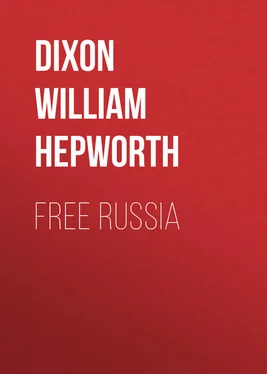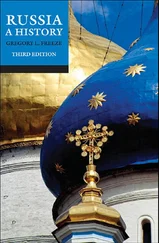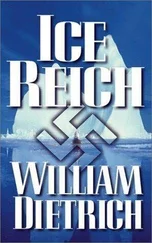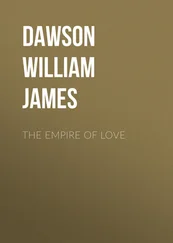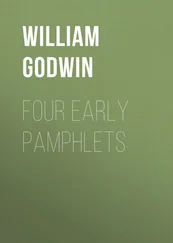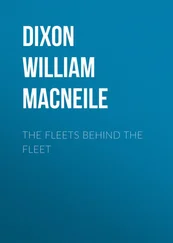William Dixon - Free Russia
Здесь есть возможность читать онлайн «William Dixon - Free Russia» — ознакомительный отрывок электронной книги совершенно бесплатно, а после прочтения отрывка купить полную версию. В некоторых случаях можно слушать аудио, скачать через торрент в формате fb2 и присутствует краткое содержание. Жанр: foreign_antique, foreign_prose, на английском языке. Описание произведения, (предисловие) а так же отзывы посетителей доступны на портале библиотеки ЛибКат.
- Название:Free Russia
- Автор:
- Жанр:
- Год:неизвестен
- ISBN:нет данных
- Рейтинг книги:3 / 5. Голосов: 1
-
Избранное:Добавить в избранное
- Отзывы:
-
Ваша оценка:
- 60
- 1
- 2
- 3
- 4
- 5
Free Russia: краткое содержание, описание и аннотация
Предлагаем к чтению аннотацию, описание, краткое содержание или предисловие (зависит от того, что написал сам автор книги «Free Russia»). Если вы не нашли необходимую информацию о книге — напишите в комментариях, мы постараемся отыскать её.
Free Russia — читать онлайн ознакомительный отрывок
Ниже представлен текст книги, разбитый по страницам. Система сохранения места последней прочитанной страницы, позволяет с удобством читать онлайн бесплатно книгу «Free Russia», без необходимости каждый раз заново искать на чём Вы остановились. Поставьте закладку, и сможете в любой момент перейти на страницу, на которой закончили чтение.
Интервал:
Закладка:
William Hepworth Dixon
Free Russia
PREFACE
Svobodnaya Rossia — Free Russia – is a word on every lip in that great country; at once the Name and Hope of the new empire born of the Crimean war. In past times Russia was free, even as Germany and France were free. She fell before Asiatic hordes; and the Tartar system lasted, in spirit, if not in form, until the war; but since that conflict ended, the old Russia has been born again. This new country – hoping to be pacific, meaning to be Free – is what I have tried to paint.
My journeys, just completed, carried me from the Polar Sea to the Ural Mountains, from the mouth of the Vistula to the Straits of Yeni Kale, including visits to the four holy shrines of Solovetsk, Pechersk, St. George, and Troitsa. My object being to paint the Living People, I have much to say about pilgrims, monks, and parish priests; about village justice, and patriarchal life; about beggars, tramps, and sectaries; about Kozaks, Kalmuks, and Kirghiz; about workmen's artels, burgher rights, and the division of land; about students' revolts and soldiers' grievances; in short, about the Human Forces which underlie and shape the external politics of our time.
Two journeys made in previous years have helped me to judge the reforms which are opening out the Japan-like empire of Nicolas into the Free Russia of the reigning prince.
February, 1870.
6 St. James's Terrace.
CHAPTER I.
UP NORTH
"White Sea!" laughs the Danish skipper, curling his thin red lip; "it is the color of English stout. The bed may be white, being bleached with the bones of wrecked and sunken men; but the waves are never white, except when they are ribbed into ice and furred with snow. A better name is that which the sailors and seal-fishers give it – the Frozen Sea!"
Rounding the North Cape, a weird and hoary mass of rock, projecting far into the Arctic foam, we drive in a south-east course, lashed by the wind and beaten by hail and rain, for two long days, during which the sun never sets and never rises, and in which, if there is dawn at the hour of midnight, there is also dusk at the time of noon.
Leaving the picturesque lines of fiord and alp behind, we run along a dim, unbroken coast, not often to be seen through the pall of mist, until, at the end of some fifty hours, we feel, as it were, the land in our front; a stretch of low-lying shore in the vague and far-off distance, trending away towards the south, like the trail of an evening cloud. We bend in a southern course, between Holy Point (Sviatoi Noss, called on our charts, in rough salt slang, Sweet Nose) and Kanin Cape, towards the Corridor; a strait some thirty miles wide, leading down from the Polar Ocean into that vast irregular dent in the northern shore of Great Russia known as the Frozen Sea.
The land now lying on our right, as we run through the Corridor, is that of the Lapps; a country of barren downs and deep black lakes; over which a few trappers and fishermen roam; subjects of the Tsar and followers of the Orthodox rite; but speaking a language of their own, not understood in the Winter Palace, and following a custom of their fathers, not yet recognized in St. Isaac's Church. Lapland is a tangle of rocks and pools; the rocks very big and broken, the pools very deep and black; with here and there a valley winding through them, on the slopes of which grows a little reindeer moss. Now and then you come upon a patch of birch and pine. No grain will grow in these Arctic zones, and the food of the natives is game and fish. Rye-bread, their only luxury, must be fetched in boats from the towns of Onega and Archangel, standing on the shores of the Frozen Sea, and fed from the warmer provinces in the south. These Lapps are still nomadic; cowering through the winter months in shanties; sprawling through the summer months in tents. Their shanty is a log pyramid thatched with moss to keep out wind and sleet; their tent is of the Comanche type; a roll of reindeer skins drawn slackly round a pole, and opened at the top to let out smoke.
A Lapp removes his dwelling from place to place, as the seasons come and go; now herding game on the hill-sides, now whipping the rivers and creeks for fish; in the warm months, roving inland in search of moss and grass; in the frozen months, drawing nearer to the shore in search of seal and cod. The men are equally expert with the bow, their ancient weapon of defense, and with the birding-piece, the arm of settlers in their midst. The women, looking any thing but lovely in their seal-skin tights and reindeer smocks, are infamous for magic and second sight. In every district of the North, a female Lapp is feared as a witch – an enchantress – who keeps a devil at her side, bound by the powers of darkness to obey her will. She can see into the coming day. She can bring a man ill-luck. She can throw herself out into space, and work upon ships that are sailing past her on the sea. Far out in the Polar brine, in waters where her countrymen fish for cod, stands a lump of rock, which the crews regard as a Woman and her Child. Such fantasies are common in these Arctic seas, where the waves wash in and out through the cliffs, and rend and carve them into wondrous shapes. A rock on the North Cape is called the Friar; a group of islets near that cape is known as the Mother and her Daughters. Seen through the veil of Polar mist, a block of stone may take a mysterious form; and that lump of rock in the Polar waste, which the cod-fishers say is like a woman with her child, has long been known to them as the Golden Hag. She is rarely seen; for the clouds in summer, and the snows in winter, hide her charms from the fishermen's eyes; but when she deigns to show her face in the clear bright sun, her children hail her with a song of joy, for on seeing her face they know that their voyage will be blessed by a plentiful harvest of skins and fish.
Woe to the mariner tossed upon their coast!
The land on our left is the Kanin peninsula; part of that region of heath and sand over which the Samoyed roams; a desert of ice and snow, still wilder than the countries hunted by the Lapp. A land without a village, without a road, without a field, without a name; for the Russians who own it have no name for it save that of the Samoyeds' Land; this province of the great empire trends away north and east from the walls of Archangel and the waters of Kanin Cape to the summits of the Ural chain and the Iron Gates of the Kara Sea. In her clefts and ridges snow never melts; and her shore-lines, stretching towards the sunrise upwards of two thousand miles, are bound in icy chains for eight months in the twelve. In June, when the winter goes away, suddenly the slopes of a few favored valleys grow green with reindeer moss; slight specks of verdure in a landscape which is even then dark with rock and gray with rime. On this green moss the reindeer feed, and on these camels of the Polar zone the wild men of the country live.
Samoyed means cannibal – man-eater; but whether the men who roam over these sands and bogs deserve their evil fame is one of the questions open to new lights. They use no fire in cooking food; and perhaps it is because they eat the reindeer raw that they have come to be accused of fondness for human flesh. In chasing the game on which they feed, the Samoyeds crept over the Ural Mountains from their far-off home in the north of Asia, running it down in a tract too cold and bare for any other race of men to dwell on. Here the Zarayny found them, thrashed them, set them to work.
These Zarayny, a clever and hardy people, seem connected in type and speech with the Finns; and they are thought to be the remnant of an ancient colony of trappers. Fairer than the Samoyeds, they live in log huts like other Russians, and are rich in herds of reindeer, which they compel the Samoyeds to tend like slaves. This service to the higher race is slowly changing the savage Samoyed into a civilized man; since it gives him a sense of property and a respect for life. A red man kills the beast he hunts; kills it beyond his need, in the animal wantonness of strength. A Samoyed would do the same; but the Zarayny have taught him to rear and tend, as well as to hunt and snare, his food. A savage, only one degree above the Pawnee and the Ute, a Samoyed builds no shed; plants no field; and owns no property in the soil. He dwells, like the Lapp, in a tent – a roll of skins, sewn on to each other with gut, and twisted round a shaft, left open at the top, and furnished with skins to lie on like an Indian lodge. No art is lavished on this roll of skin; not so much as the totem which a Cheyenne daubs on his prairie tent. Yet the Samoyed has notions of village life, and even of government. A collection of tents he calls a Choom; his choom is ruled by a medicine-man; the official name of whom in Russian society is a pope.
Читать дальшеИнтервал:
Закладка:
Похожие книги на «Free Russia»
Представляем Вашему вниманию похожие книги на «Free Russia» списком для выбора. Мы отобрали схожую по названию и смыслу литературу в надежде предоставить читателям больше вариантов отыскать новые, интересные, ещё непрочитанные произведения.
Обсуждение, отзывы о книге «Free Russia» и просто собственные мнения читателей. Оставьте ваши комментарии, напишите, что Вы думаете о произведении, его смысле или главных героях. Укажите что конкретно понравилось, а что нет, и почему Вы так считаете.
